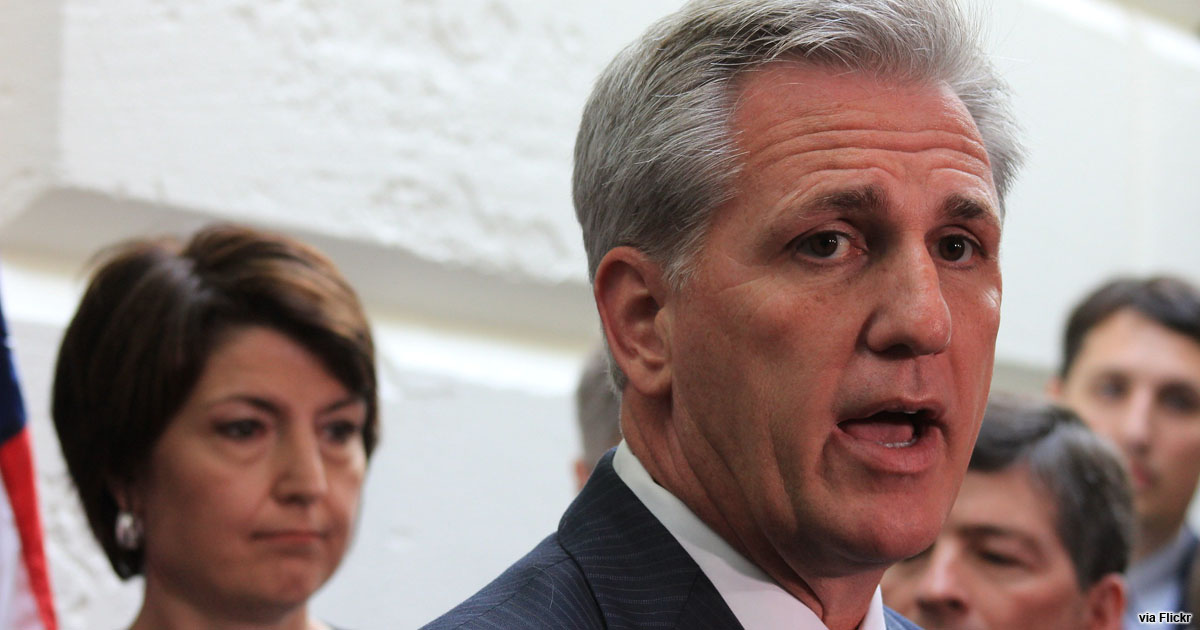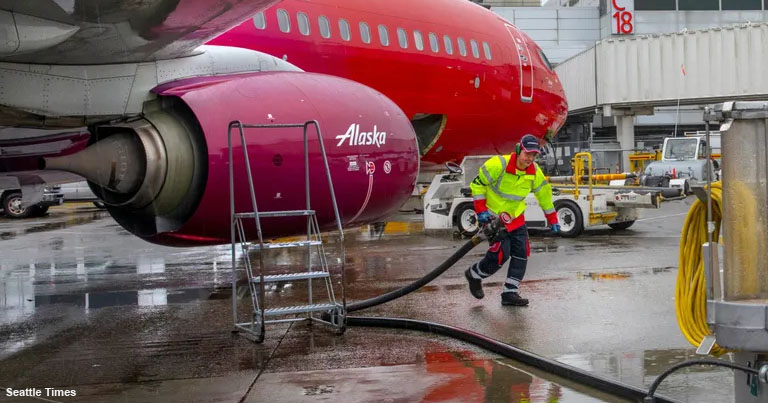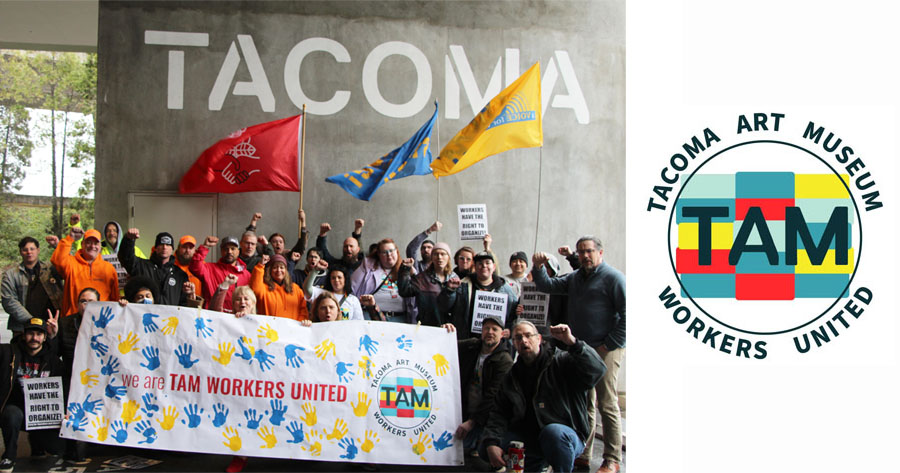NEWS ROUNDUP
Biogas jobs ahead | Tradeswomen’s quest | This will drive you crazy
Friday, May 19, 2023
THIS WASHINGTON
 ► From the Seattle Times — New $800M sustainable aviation fuel plant planned for Washington state — Dutch company SkyNRG has chosen Washington state to locate a major new biogas plant that will produce sustainable aviation fuel — a key part of the airline world’s push to decarbonize flying. SkyNRG CEO Philippe Lacamp said he expects the plant to be operational by 2028 or 2029. Its construction will provide about 600 jobs, and running it thereafter will provide about 100 permanent new jobs, he said. Lacamp said new state legislation signed this month by Gov. Jay Inslee that provides sustainable aviation fuel, or SAF, subsidies and speeds permits for plant construction tip the scale for Washington. The legislation “positions Washington state as the most attractive, most supportive state for SAF,” he said. … Chris Raymond, Boeing’s chief sustainability officer, said Boeing union leader Jon Holden, District 751 president at the International Association of Machinists, played a strong role in convincing the Legislature to support the bills.
► From the Seattle Times — New $800M sustainable aviation fuel plant planned for Washington state — Dutch company SkyNRG has chosen Washington state to locate a major new biogas plant that will produce sustainable aviation fuel — a key part of the airline world’s push to decarbonize flying. SkyNRG CEO Philippe Lacamp said he expects the plant to be operational by 2028 or 2029. Its construction will provide about 600 jobs, and running it thereafter will provide about 100 permanent new jobs, he said. Lacamp said new state legislation signed this month by Gov. Jay Inslee that provides sustainable aviation fuel, or SAF, subsidies and speeds permits for plant construction tip the scale for Washington. The legislation “positions Washington state as the most attractive, most supportive state for SAF,” he said. … Chris Raymond, Boeing’s chief sustainability officer, said Boeing union leader Jon Holden, District 751 president at the International Association of Machinists, played a strong role in convincing the Legislature to support the bills.
► From the (Everett) Herald — Home care providers win $21 minimum wage, more in new state budget — Home care providers are celebrating big wins from the legislative session, including a two-year budget that increases the starting wage to $21 per hour for most home care providers. “People feel good about the Legislature taking their concerns seriously,” said SEIU 775’s Adam Glickman. “Caregivers feel like their work is being valued.”
► From Crosscut — Washington labor market still ‘resilient’ amid recession concerns — The latest Washington jobs report shows slowing yet ongoing employment growth in recent months, which seems like positive news but tech layoffs and fewer openings hint at an economic slowdown.
► From the WA State Standard — Inslee axes special education study, drawing bipartisan rebuke — As millions in new state funding flows to special ed, the governor cited student privacy concerns in vetoing an audit of how well programs are working.
LOCAL
► MUST-READ from the NW Labor Press — A quest for equal opportunity — The rate of female apprentices grew to 9% this year, from 7% in 2018. But in spite of increased recruitment efforts, improved working conditions, and even mandates by some project owners to hire more women, the growth has been slow. To find out what may be holding women back from joining the building trades, the Labor Press interviewed a dozen tradeswomen about what it’s like to be a woman in the male-dominated construction industry. Though their experiences were in five separate unions, they all described challenges with harassment, isolation, and unequal treatment.
► From the PS Business Journal — Nurses at MultiCare hospital vote ‘no confidence’ in CEO amid contract negotiations — Union nurses at MultiCare’s Good Samaritan Hospital in Puyallup have approved a no confidence vote against the system’s CEO, Bill Robertson, amid stalled contract negotiations. The hospital’s 750 nurses, represented by the Washington State Nurses Association, said Robertson declined an invitation to a town hall discussion about staffing concerns they want to address via collective bargaining.
 ► From The Stranger — Council candidates grovel before MLK Labor (by Hannah Krieg) — At a forum last week, Seattle city council candidates chasing open seats in Districts 1, 3, 4, and 5 vied for the powerful endorsement of MLK Labor, one of two major powers with the money and the people-power to sway elections in Seattle. Though all the candidates tried to prove themselves to the 150-plus unions and 100,000 workers under the local labor council’s umbrella, the forum was equally important for the labor community as they searched for a successor to Seattle City Council Member Teresa Mosqueda, a labor leadership champion who is now applying for (and will likely get) a new job on the county council.
► From The Stranger — Council candidates grovel before MLK Labor (by Hannah Krieg) — At a forum last week, Seattle city council candidates chasing open seats in Districts 1, 3, 4, and 5 vied for the powerful endorsement of MLK Labor, one of two major powers with the money and the people-power to sway elections in Seattle. Though all the candidates tried to prove themselves to the 150-plus unions and 100,000 workers under the local labor council’s umbrella, the forum was equally important for the labor community as they searched for a successor to Seattle City Council Member Teresa Mosqueda, a labor leadership champion who is now applying for (and will likely get) a new job on the county council.
► From the Daily World — Hoquiam school board votes to close Central Elementary
► From the union-busting Columbian — Public schools smart to boost skilled trades (editorial)
THAT WASHINGTON

Rep. Cathy McMorris Rodgers (R-WA, 5th) and House Speaker Kevin McCarthy
► From the Washington Post — World watches in disbelief and horror as U.S. nears possible default — Around the world, experts are watching in disbelief as the U.S. flirts with its first default, fearful of the potential international economic ramifications — and astonished by the global superpower’s brush with self-sabotage. Rich and poor nations alike fear a possible U.S. default, which would torpedo the financial markets and deal a massive blow to the dollar. Analysts say the impasse jeopardizes America’s standing abroad.
► From The Hill — Freedom Caucus says ‘no further discussion’ on debt ceiling until Senate passes House GOP bill — The Republicans’ House Freedom Caucus is calling for “no further discussion” on legislation to raise the debt ceiling until the Senate passes the bill House Republicans approved last month that would pair an increase in the borrowing limit with steep spending cuts. Senate Majority Leader Chuck Schumer (D-N.Y.) has called the bill “dead on arrival.”
The Stand (May 5) — How Republican spending cuts will hurt Washington state
 ► From Vox — Hundreds of thousands of Americans are losing Medicaid every month — Hundreds of thousands of Americans lost their Medicaid benefits in April, as emergency pandemic provisions that kept people enrolled began to end. The coverage losses are going to only grow. In Florida, nearly 250,000 people lost Medicaid coverage in April, as states began a process to check whether everyone currently enrolled in Medicaid still meets the eligibility criteria. About 73,000 people were also deemed ineligible in Arkansas. Another 53,000 had their coverage terminated in Indiana and 40,000 were removed from Medicaid in Arizona.
► From Vox — Hundreds of thousands of Americans are losing Medicaid every month — Hundreds of thousands of Americans lost their Medicaid benefits in April, as emergency pandemic provisions that kept people enrolled began to end. The coverage losses are going to only grow. In Florida, nearly 250,000 people lost Medicaid coverage in April, as states began a process to check whether everyone currently enrolled in Medicaid still meets the eligibility criteria. About 73,000 people were also deemed ineligible in Arkansas. Another 53,000 had their coverage terminated in Indiana and 40,000 were removed from Medicaid in Arizona.
► From the USA Today — Vanishing paychecks: How hundreds of USPS workers fell prey to a fake website scam — Paltry cybersecurity and slow-moving bureaucracy at the U.S. Postal Service meant hundreds of mail carriers, handlers and service clerks fell victim to a complex direct deposit scheme that left them without pay and angry that the federal government had failed to heed multiple warnings.
► From the NY Times — America’s semiconductor boom faces a challenge: Not enough workers — Strengthened by billions of federal dollars, semiconductor firms plan to create thousands of jobs. But officials say there might not be enough people to fill them.
 EDITOR’S NOTE — The closest this article comes to reporting how much these workers will get paid is President Biden’s aspiration that they be well-paying jobs. Instead, it invited industry “experts” to complain about the government needing to pay for more and better training programs, and perhaps relax visa requirements for foreign workers. All together now: There is no labor shortage, there is a wage shortage.
EDITOR’S NOTE — The closest this article comes to reporting how much these workers will get paid is President Biden’s aspiration that they be well-paying jobs. Instead, it invited industry “experts” to complain about the government needing to pay for more and better training programs, and perhaps relax visa requirements for foreign workers. All together now: There is no labor shortage, there is a wage shortage.
► From Politico — Labor cop tackles USC, NCAA in athletes’ rights case — The NLRB wants an administrative law judge to order the NCAA, USC and Pac-12 to “cease and desist from misclassifying” players as student-athletes and instead label them as employees.
► From Politico — University of California considers hiring undocumented students despite federal ban — Such a move would forward an unprecedented test to federal immigration and employment law.
NATIONAL
► From the Art Newspaper — Changing institutional culture from the inside out: why more and more US museum workers are forming unions — Workers at more than 20 institutions have formed a union since 2020 or are actively in negotiations for their first contract, including the Jewish Museum and the Solomon R. Guggenheim Museum in New York, the Museum of Fine Arts in Boston, and Mass Moca in Massachusetts. The issues prompting workers to form unions across the country and across a broad range of industry sectors are remarkably consistent: wages, benefits and working conditions.
The Stand (May 16) — Tacoma Art Museum board opts for more union-busting — WSLC vows continued solidarity with TAM Workers United: “We have defeated these tactics before, and we will defeat them again.”
 ► From the People’s World — Minnesota lawmakers on verge of banning captive audience meetings — Minnesota lawmakers appear on the verge of banning one of employers’ most notorious anti-union tactics, so-called “captive audience meetings.” If approved and signed by Gov. Tim Walz (DFL-Minn.), an Education Minnesota union member, Minnesota would join Connecticut and Oregon in outlawing the meetings, one of the most intimidating—and successful—devices bosses use to thwart workers during union organizing campaigns.
► From the People’s World — Minnesota lawmakers on verge of banning captive audience meetings — Minnesota lawmakers appear on the verge of banning one of employers’ most notorious anti-union tactics, so-called “captive audience meetings.” If approved and signed by Gov. Tim Walz (DFL-Minn.), an Education Minnesota union member, Minnesota would join Connecticut and Oregon in outlawing the meetings, one of the most intimidating—and successful—devices bosses use to thwart workers during union organizing campaigns.
EDITOR’S NOTE — Washington state legislators considered similar legislation this year: SB 5417, The Employee Free Choice Act sponsored by Sen. Karen Keiser (D-Des Moines). Although it failed to advance from the Senate, it will be back.
► From the Hechinger Report — School support staffers stuck earning poverty level wages — At the beginning of the 2022-23 school year, 53 percent of public schools reported being understaffed, according to the Institute of Educational Sciences. While teacher shortages often get the most attention, shortages among non-teaching staff also disrupt the smooth running of schools. Support staff members — teacher’s aides (also known as paraprofessionals) and other support staff, such as bus drivers, secretaries, health techs, campus supervisors and information technology support workers — often describe themselves as a hidden workforce.
 ► From the NY Times — Amazon is everywhere. That’s what makes it so vulnerable. (by Noam Schiber) — If workers walk off the job at one of Amazon’s traditional warehouses, the business impact is likely to be minimal because the sheer number of warehouses means orders can be easily redirected to another one. But a shipping network has far less redundancy. If one site goes down, typically either the packages don’t arrive on time or the site must be bypassed, often at considerable expense. And as Amazon’s chief executive, Andy Jassy, seeks to drive down shipping times further, the disruptive potential of this kind of worker organizing may be growing.
► From the NY Times — Amazon is everywhere. That’s what makes it so vulnerable. (by Noam Schiber) — If workers walk off the job at one of Amazon’s traditional warehouses, the business impact is likely to be minimal because the sheer number of warehouses means orders can be easily redirected to another one. But a shipping network has far less redundancy. If one site goes down, typically either the packages don’t arrive on time or the site must be bypassed, often at considerable expense. And as Amazon’s chief executive, Andy Jassy, seeks to drive down shipping times further, the disruptive potential of this kind of worker organizing may be growing.
► From Reuters — Pilots, airlines seek to strike new contracts ahead of peak travel season — North American pilots are pushing for better pay and working conditions during their talks over new employment contracts with company managements. Members at some unions have voted to authorize a strike if a new contract isn’t reached.
► From Reuters — Canada’s WestJet reaches deal with pilots, averts strike
► From the AP — Sean Penn, backing WGA strike, calls Producers Guild the ‘Bankers Guild’ at Cannes Film Festival
T.G.I.F.
► In a blockbuster exclusive interview with People magazine published Thursday, Sting revealed… his top two karaoke songs of all time. This 1988 hit by the Fine Young Cannibals was one of them. Kinda makes sense when you hear Roland Gift’s Sting-like falsetto. And once you do, good luck getting this earworm out of your head. You’re welcome.
The Stand posts links to Washington state and national news of interest every weekday morning by 10 a.m.








